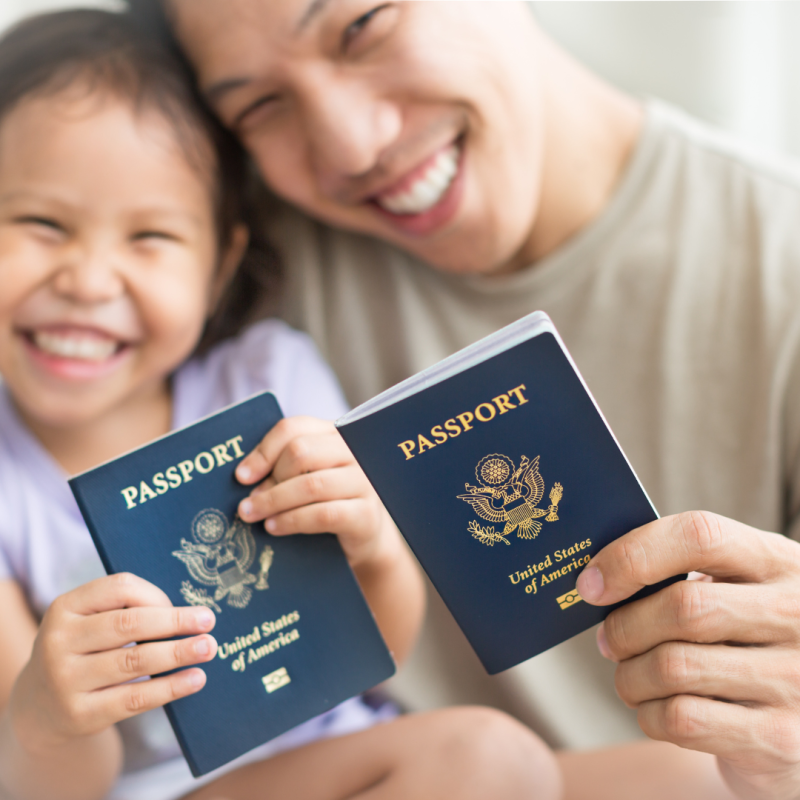The immigration process can understandably be intimidating.
The stakes can be high for applicants, whether they’re seeking asylum or trying to rejoin family in a new country. For those in these circumstances, having the status of their residency in the hands of the Home Office can be hard. However, there is always hope that the final decision will ultimately be best for them and their specific situation.
What, then, can an applicant do if they truly feel that the Home Office’s final decision does not consider their situation and best interests?
This is where the ability to appeal against immigration decisions comes in. The immigration appeals process allows those whose original application was denied to have the evidence of their case reviewed one more time.
In this article, we want to shed light on how the immigration appeals process works and how employing the help of a solicitor can make a difference. To aid us in this, we will utilise a case we worked on in 2019 as a reference point. We hope this article can ease any fears surrounding the process and show that solicitors can play a huge role in securing the best outcome.
How Does the Immigration Appeals Process Work?
If the Home Office rejects your initial application, you can appeal to the First-Tier Tribunal (Immigration and Asylum Chamber). You can also appeal to this tribunal if:
- Your protection status is revoked.
- Your British citizenship is revoked.
- You’re deported, or you’re facing deportation.
- The length and/or conditions of your stay are altered.
You can carry out this appeal with the representation of a solicitor or immigration advisor. Additionally, you could represent yourself. We would, however, recommend seeking advice and representation. A knowledgeable professional will prevent you from being caught out by common legal pitfalls and will provide extensive support.
If the First-Tier Tribunal also dismisses your appeal, you may apply to have your case reviewed by the Upper Tribunal. This tribunal is reserved for handling appeals against decisions made by the First-Tier Tribunal, on the basis that the laws applied to the appellant’s situation were done so incorrectly.
We hope this brief outline of how an appeal escalates through the process is beneficial and provides adequate context for the next section of this article.
Events of the Appeal Case
As we briefly mentioned, this case occurred in 2019 after a failed appeal eventually brought the situation to the Upper Tribunal. The appellant was a child who originally attempted to enter the country on the grounds of human rights.
The appellant was granted a hearing with the Upper Tribunal. In the First-Tier Tribunal judge’s proportionality exercise, he did not give much weight to the fact that the child met all immigration requirements, and ultimately the appeal failed.
However, it could have been argued that the fact the child met these requirements meant that the appeal in actuality should have succeeded.
This is what E. Norman, barrister instructed by Tann Law Solicitors and the appellant’s representative, had the task of proving.
The primary argument for how the judge in the First-Tier Tribunal applied the law incorrectly was the case of TZ (Pakistan) [2018] EWCA Civ 1109. This case made it clear that when a person meets the requirements for immigration, it should be weighted positively in the judge’s considerations of their Article 8 appeal, as in that case it would be considered disproportionate for this person to be removed.
The appellant, in this case, did meet the required conditions. The previous judge had also argued that the appellant’s situation did not satisfy certain regulations, such as paragraph 276ADE and Appendix FM. However, it was pointed out that these two specific regulations were irrelevant due to the appellant not currently residing in the UK and their status as a child, respectively.
Once this was established and the appellant emphasised that they wished to join their sponsor and other family members in the UK, the previous decision was declared an error of law and overturned.

What Can Be Learned About the Immigration Appeals Process?
As we established earlier, the immigration appeals process is rather difficult. As we can see in this case, the decision is often made based on proportionality. This means determining whether denying somebody entry or removing them from the country would be proportional and takes the UK public’s best interests into consideration.
While some situations are fairly cut-and-dry, others can be complex, presenting different extenuating circumstances that must be balanced to come to a decision.
It’s in these more nuanced situations that errors such as the one in this case might occur. This is why the function of the Upper Tribunal is so essential; its existence is crucial for situations where the law might have been applied inaccurately or erroneously.
As we witnessed in this case, the key to resolving such situations is to build a solid and convincing argument based on how a legal mistake might have determined the appeal’s outcome. For example, if any of the laws applied were irrelevant, or if important evidence was not considered.
To give yourself the best chance of success in the upper tribunal, you must effectively prove that a legal mistake was made by the First-Tier Tribunal that influenced their decision. This is where strong legal representation and advice come in. A solicitor’s knowledge of the intricacies of immigration law will be massively useful in locating where these laws might have been applied incorrectly.
To give yourself the best chance of success in the upper tribunal, you must effectively prove that a legal mistake was made by the First-Tier Tribunal that influenced their decision.
It should be noted that the Upper Tribunal cannot be used to dispute the facts of your appeal based on how you feel about its outcome. The Upper Tribunal can only be used if there is an argument that the law was applied erroneously. If your appeal to the First-Tier Tribunal failed and you were not granted permission to appeal to the Upper Tribunal, you’ll be advised to seek other means of appeal.
Concluding Notes
We hope this has shed some light on the immigration appeals process. For any of our readers who are considering appealing an immigration decision or are going through a similar situation, we hope this article has provided you with some valuable insight.
Our team at Tann Law can support those going through similar situations due to our extensive knowledge and expertise on the immigration appeals process. To learn more about how we can help, see our appeals page, or for a broader range of information, you can find our entire range of immigration services here.
We’re here to help, so don’t feel you have to struggle alone. Get in contact today and we can tackle the challenges presented by the immigration appeals process, together.

